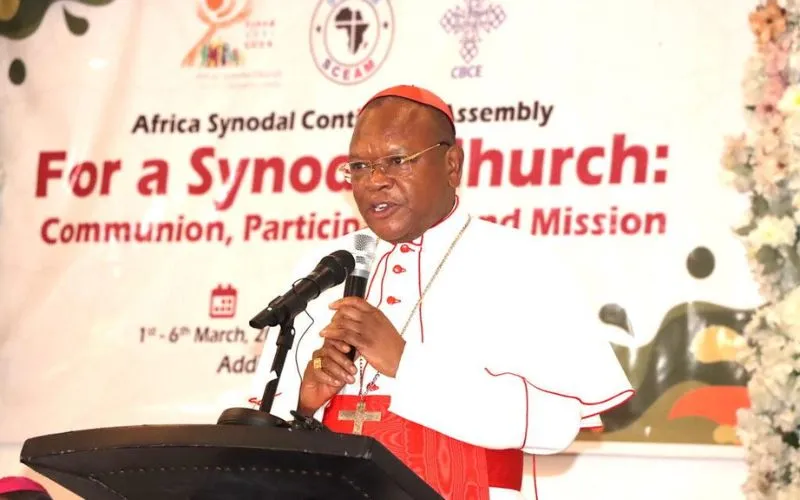Nairobi, 21 December, 2023 / 9:50 pm (ACI Africa).
Catholic Bishops in Africa are consulting among themselves in view of issuing a “single synodal pronouncement” on Fiducia Supplicans, the Vatican declaration on the possibility of blessing “same-sex couples” and couples in other “irregular situations”.
In a statement circulated Thursday, December 21, the President of the Symposium of Episcopal Conference of Africa and Madagascar (SECAM) reaches out to his brother Bishops for opinion on the document that the Dicastery for the Doctrine of Faith (DDF) released on Monday, December 18 in view of giving “definitive guidance” to the people of God on the world’s second-largest and second-most populous continent.
“The nuanced nature of this declaration, open to various interpretations and potential manipulations, has led to considerable uncertainty among the faithful,” Fridolin Cardinal Ambongo says, hinting to the deep division among Catholic Bishops around the globe over the Vatican Declaration permitting nonliturgical blessings of same-sex couples.
In the one-page statement dated December 20 and addressed to Presidents of Catholic Bishops’ Conferences of Africa and its Islands, Cardinal Ambongo adds, “As shepherds of the Church in Africa, it is incumbent upon us to provide unequivocal clarity on this matter, offering definitive guidance to our Christian community.”
“I am writing to you, dear Presidents, to ask for your opinion on the above-mentioned Declaration of the Dicastery for the Doctrine of the Faith, so that we can draw up a single synodal pronouncement, valid for the whole Church in Africa,” the President of SECAM says, citing Chapter 19#d of the Synod on Synodality Synthesis Report that was released on October 28 under the title, “a Synodal Church in Mission”.








